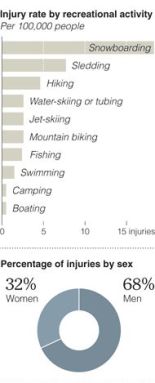 With so many Americans calling themselves “spiritual” rather than religious, many in the Christian community have asked, “How can we make Christianity more spiritual?” That is a laughable question because Christianity is inherently spiritual. Prayer, baptism, worship, singing, communion, fellowship, reading scripture, and the list can go on. Sure, Christianity does not have rocks, stones, and other “new age” objects or artifacts, but there is a steady diet of spiritual things in Christianity.
With so many Americans calling themselves “spiritual” rather than religious, many in the Christian community have asked, “How can we make Christianity more spiritual?” That is a laughable question because Christianity is inherently spiritual. Prayer, baptism, worship, singing, communion, fellowship, reading scripture, and the list can go on. Sure, Christianity does not have rocks, stones, and other “new age” objects or artifacts, but there is a steady diet of spiritual things in Christianity.
For hundreds of years mystic, monastic, and ascetic Christians have sought to have a deeper connection with God. St. John of the Cross, Francis of Assisi, Julian of Norwich, and Thomas Merton are a few names that Christians may have heard before. Sometimes their stories are bizarre, but often many mystics simply wanted a prayerful spiritual life.
Some Christians may run the other way when they hear the word “mystical”, but believe it or not every time we pray we are being mystical. When we pray, we are praying to a transcendent God to ask or praise him for supernatural works. When we Christians use the word “mystical” we are talking about the spiritual life and we do not have to speak in tongues to be spiritual either.
One the most transformational components of the spiritual life is reading scripture. However, many find the Bible boring and need a guide when reading. One the most spiritual things we can do when we read scripture is to participate in lectio divina. What the heck is that?








 A fresh
A fresh  Academy Award-winning American actor, writer and folk music singer Burl Ives was made famous by playing the role of “Big Daddy” in the play turned movie Cat on a Hot Tin Roof. Big Daddy is portrayed as an impatient, selfish, and harsh father to his son Brick, played by Paul Newman. Big Daddy epitomizes impatience: agitated, red, sweaty, shaky, and hot. All signs of high level stress.
Academy Award-winning American actor, writer and folk music singer Burl Ives was made famous by playing the role of “Big Daddy” in the play turned movie Cat on a Hot Tin Roof. Big Daddy is portrayed as an impatient, selfish, and harsh father to his son Brick, played by Paul Newman. Big Daddy epitomizes impatience: agitated, red, sweaty, shaky, and hot. All signs of high level stress. Many people ask me what I’d being doing if I was not a pastor, often I say, “I don’t know, but I know I would not be happy if I was not a pastor.” I truly cannot imagine doing anything other than ministering to others, cultivating faith, teaching, and providing spiritual care. However, I could be a chaplain to an NFL team. What a dream job!
Many people ask me what I’d being doing if I was not a pastor, often I say, “I don’t know, but I know I would not be happy if I was not a pastor.” I truly cannot imagine doing anything other than ministering to others, cultivating faith, teaching, and providing spiritual care. However, I could be a chaplain to an NFL team. What a dream job! Some of us may be uncomfortable with the holiday that is upon us: the dreaded Halloween! What an evil holiday! But, wait! Is Halloween really that evil?
Some of us may be uncomfortable with the holiday that is upon us: the dreaded Halloween! What an evil holiday! But, wait! Is Halloween really that evil? Author Russell Rathbun spoke with On the Bema about his new book,
Author Russell Rathbun spoke with On the Bema about his new book, 

You must be logged in to post a comment.